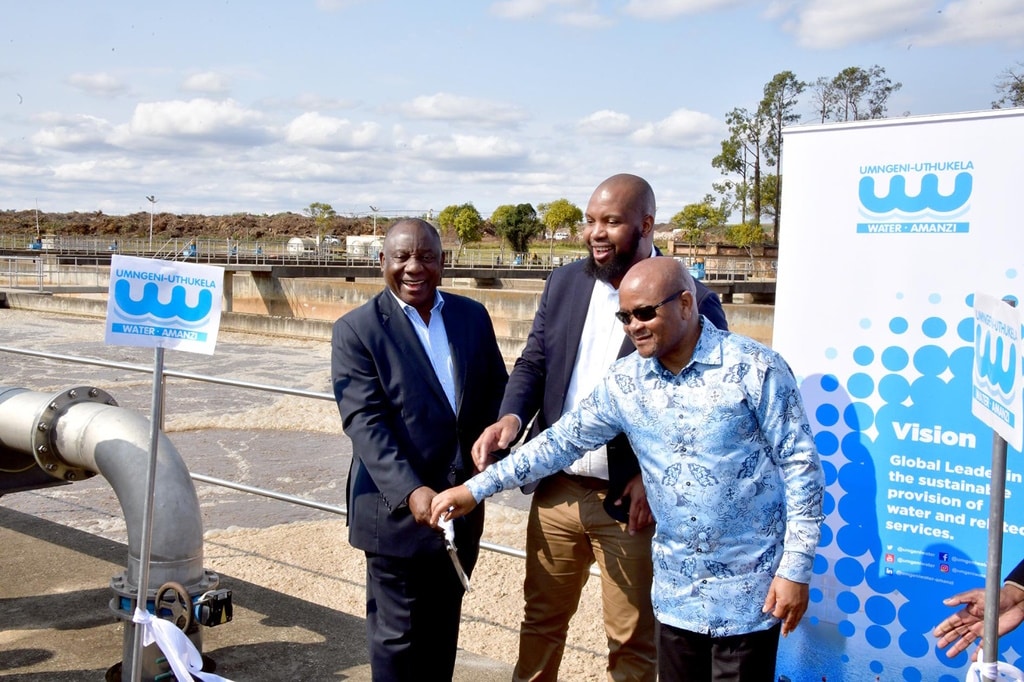Following in the footsteps of Namibia, South Africa is now taking the controversial step of recycling treated wastewater as drinking water. On 21 July 2023, South Africa’s Head of State Cyrille Ramaphosa presided over the ceremony to recommission the Darvill wastewater treatment plant, which had been closed for several years due to upgrading work. With a capacity of 65,000 m3 before the project was implemented, the plant is now capable of treating 100,000 m3 of treated wastewater per day, “2,000 m3 of which meets drinking water quality standards”, according to the South African Department of Water and Sanitation.
The public company Umngeni-uthukela Water Board, which supplies drinking water in the province of KwaZulu-Natal, carried out the work on the site of the Darvill wastewater treatment plant, located near the New England road in the town of Pietermaritzburg. This is the second rehabilitation project to be undertaken on this site since the plant was commissioned in 1958, with an initial capacity of 27,000 m3 per day.
Read Also – SOUTH AFRICA: Northern Cape’s Prieska wastewater treatment plant goes operational
In addition to improving the supply of drinking water in the drought-stricken province of KwaZulu-Natal, the project, which is nearing completion, will improve the quality of domestic and industrial wastewater from areas within the jurisdiction of the Msunduzi municipality, which is returned to the river of the same name. This will protect the health of some 700,000 people and the environment.
Work to modernise the Darvill plant has also included the construction of an infrastructure dedicated to the recovery of sewage sludge for the production of electricity, in order to make the wastewater treatment plant energy self-sufficient. The extension and modernisation of the plant required an investment of 1 billion South African rand, around 55.8 million dollars.
Inès Magoum
